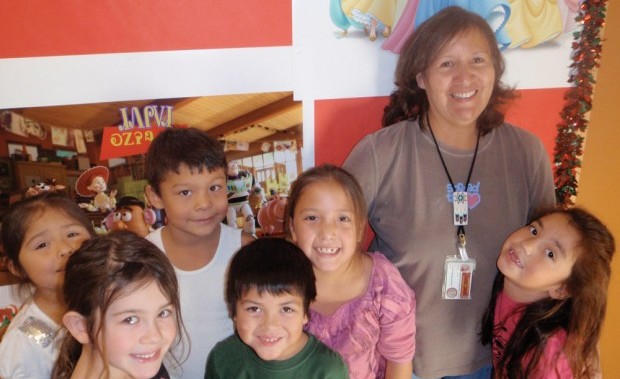But it is not always as easy to integrate modern ideas and ancient language. For example, scientific discoveries made within the past century do not exist in Cherokee, so academy leaders meet four times a year to decide on the translations for words ranging from atom to Triceratops. At the seasonal meetings the leaders also address issues of how to present curriculum. New Kituwah Academy is held to the same state education standards as all North Carolina public schools, which means they eventually will be teaching history lessons on Columbus and the U.S. Constitution. But how do you teach the Declaration of Independence when life, liberty, and the pursuit of happiness did not originally apply to the Native Americans?
Stigmas and stereotypes are additional hurdles, says Gil Jackson, head administrator at New Kituwah.
“Parents still fear that enrolling their students in Cherokee language immersion school will prevent them from functioning in the ‘real world. There is still a feeling that we are somehow holding them back.”
That is one reason why New Kituwah incorporates a 30-minute English lesson into the daily schedule. But outside of that time frame, in the hallways, on the playground, and everywhere else at New Kituwah, only Cherokee is spoken. Even the janitor, cooks, and office administrators speak Cherokee – to the children, and to each other.
“We didn’t think the language was important until we almost lost it,” says J.C. Wachacha, a Cherokee elder and instructor at New Kituwah. “Our generation failed in that respect. That’s the one regret I’ve got. Our ancestors gave us the language as a gift, and now it is our job to preserve it and pass it on.”
The ancient Kituwah fire lives on in the Cherokee’s native tongue. In a culture bombarded with tourists and technology, both elders and modern Cherokee agree that language is the primary path to reigniting and reuniting the Cherokee nation.








